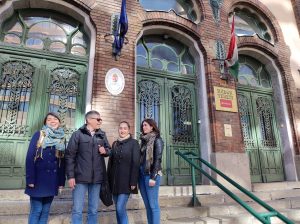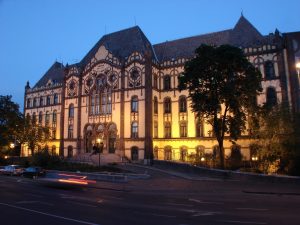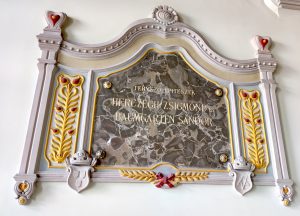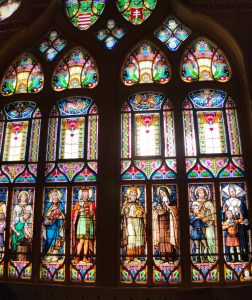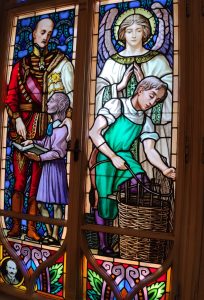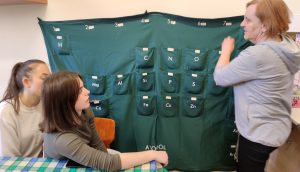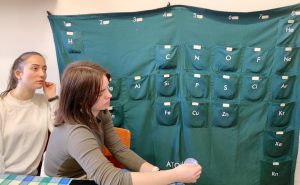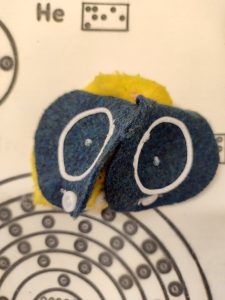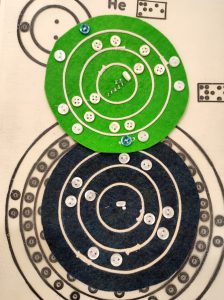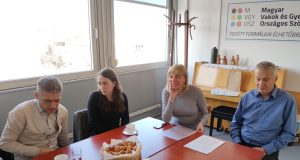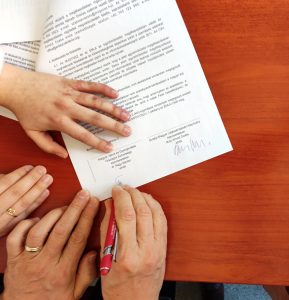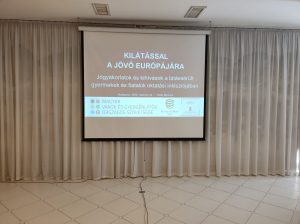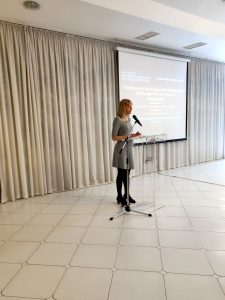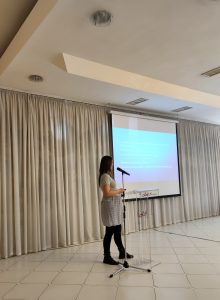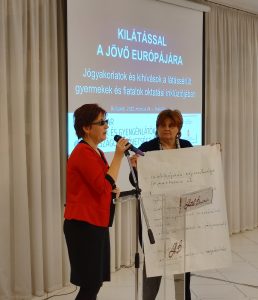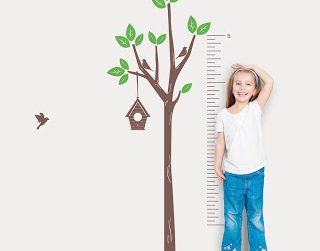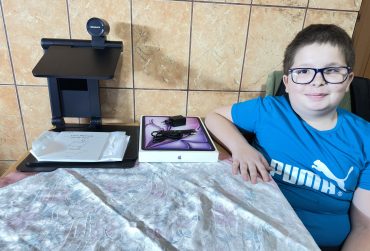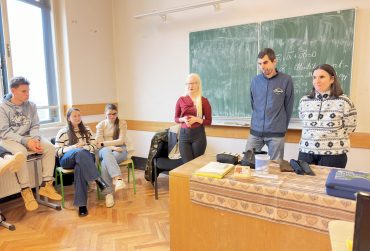Last week we were on a study trip to Hungary, and we had an informative and busy schedule. We were touched by the sincere kindness, support and friendly attention of our hosts, and we are grateful for everything.
The five-day study trip was attended by Gizella Ferencz, a special education teacher and travel teacher, who currently helps visually impaired children (and not only) in Harghita County, as well as teachers and parents, with professional advice and practical guides. Anita Szakács and Annamária Lőrincz, special education teachers, also took part in the professional trip, thanks to them for their sincere interest and perseverance.
We visited the Budapest School for the Blind (full name: Kindergarten, Primary School, Vocational School, Skills Development School, Unified Methodological Institute for Special Education, Dormitory and Children’s Home for the Blind), in the morning Éva Szemerei, the head of the Methodological Centre, gave a detailed and comprehensive presentation about the whole institution, its history, structure, operation, successes and present challenges, students and everyday life.
Afterwards we visited the Vocational School and Skills Development Centre, the basket weaving and pottery workshops, the College, and the Primary School, where we met Dr. Zsigmondné Szombati, who presented, among other things, the AtoMol didactic tool, which is essentially a molecular modelling tool for teaching chemistry to visually impaired and sighted people alike. Thank you Panni, it was a memorable experience!
We also visited the Multiple Damaged Class, which in this case, severe visual impairment and intellectual disabilities result in a specific condition that requires special tools and methods, and children are not able to progress with their peers in learning. At the Methodology Centre, we also had the opportunity to see the work of a vision developer and trainer, and to meet a specialist in teaching daily activities, who showed us a lot of accessible equipment: a toothbrush with a voice, a talking scale, a vegetable chopper that is easy and safe to use, a Braille label maker, 3D printed street maps that are useful for teaching transport and orientation, and many other tools that help blind and visually impaired children and adults in their daily lives. Thank you very much to Ágnes Somorjai Director, for the whole day of hospitality, for the encouragement, the time and the professional advice!
We also visited the BULÁKE Eye(l)lifestyle Rehabilitation Centre, where we were welcomed by Gyöngyvér Mikola, a professional manager and rehabilitation specialist, and had a functional vision test. Thank you!
Also on the same day we had the opportunity to meet with the leadership of MVGYOSZ (National Association of the Hungarian Blind and Visually Impaired): president Dr. Sándor Nagy, Dr. Mónika Nagyné Berke, Orsolya Németh, professional manager, Anett Puskás, youth adviser, and Imola Móni, one of the special education teachers of MVGYOSZ. During the long and informal discussion, a cooperation agreement between MVGYOSZ and EMLA was signed, which we are very happy about. We also had an informal working dinner with the leaders and staff of MVGYOSZ, where we met the great and humble Mr. Luboš Zajíc, President of the National Association of the Blind in the Czech Republic and his lovely wife. The President was friendly, direct and communicative, we listened with interest and understanding. Despite the fact that the institutional system that has been in place in the Czech Republic and Hungary for many decades is only now being built up by EMLE, our basic ideas, professional arguments, goals and often implementation strategies proved to be very similar.
At the conference entitled “Looking ahead to the Europe of tomorrow – Good Practices and Challenges in the Educational Inclusion of Children and Youth with Visual Impairment”, Hungarian and European experts gave presentations. It was good to participate, to talk, to debate, to listen the practitioners and professionals.
We had to see that the Romanian special education system had a serious handicap in that it had not yet recognised the problems to which European experts had long ago provided multi-layered, reassuring and widely applicable answers. The country’s pedagogical public perception of inclusive education is far from being inclusive, as the professional foundations for the implementation of integrated education (a prerequisite for inclusive education) are also woefully lacking. At the same time, we see the perspective, we know that in Hungary or in other European specialised (in this case ‘blind’) methodological centres, schools, scientific workshops, a wealth of experience and knowledge has been accumulated and is being shared with us and our future professionals as necessary. We came home with high hopes, faith and a desire to do our best: all children deserve the best!
Thank you to Ágnes Somorjai Director, Éva Szemerei, Professional Manager, Panni, who is always creative and passionate about teaching, Gyöngyvér Mikola, Professional Manager, Dr. Sándor Nagy, President, Orsolya Nagy, Professional Manager, Luboš Zajíc, President, and many more friends for having us there, for having us, for having us, for having us, for having us, for having us. Thank you!

